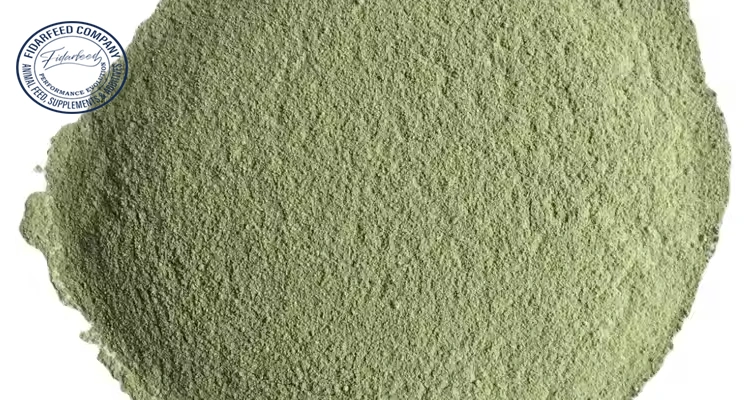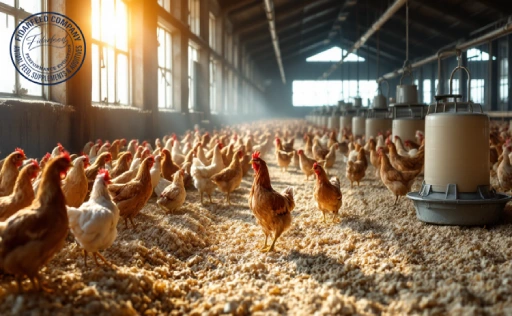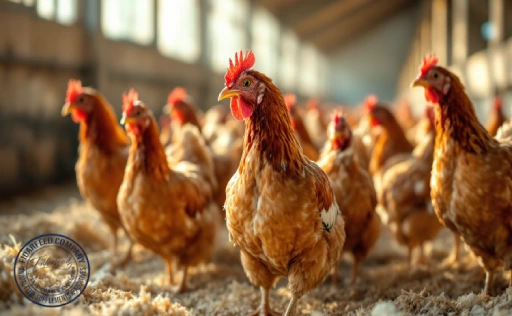
Zeolite feed additive is rapidly gaining attention in the animal feed industry—and for good reason. As breeders and nutrition experts look for cost-effective, natural solutions to improve livestock health and feed performance, zeolite stands out as a valuable, affordable choice. Whether you’re managing a poultry farm, raising cattle, or involved in aquaculture, zeolite offers a practical way to enhance feed efficiency, reduce toxins, and support overall animal well-being.
In this article, we’ll break down everything you need to know about using zeolite in animal diets—from its benefits and applications to how to choose the right product without overspending. Let’s explore how you can make a smart investment in better animal health—without breaking the bank.
Why Zeolite Feed Additives Are Gaining Popularity Among Animal Breeders
Animal breeders today face increasing pressure to balance performance, profitability, and sustainability. In this context, zeolite feed additives are becoming a preferred solution.
Originally known for their use in environmental cleanup, zeolites are natural minerals with unique properties that make them effective in animal nutrition. They’re valued for their ability to trap toxins, reduce ammonia levels, and improve nutrient retention.
Learn more about: Zeolite
In regions where feed costs are high and antibiotic use is restricted, zeolite provides an affordable alternative that doesn’t compromise on quality or results. Its rise in popularity reflects a growing shift toward natural, functional additives that deliver measurable improvements across different animal species.
Key Benefits of Using Zeolite Feed Additive in Animal Diets
Zeolite’s value lies in its multi-functional benefits. Here are the key advantages breeders can expect:
-
Improved Digestion: Zeolite slows the passage of feed through the digestive tract, allowing better nutrient absorption.
-
Toxin Binding: Its porous structure captures harmful substances like mycotoxins and heavy metals, reducing their impact on animal health.
-
Ammonia Control: Zeolite reduces ammonia in manure, leading to cleaner air, less odor, and better litter or bedding conditions.
-
Enhanced Feed Efficiency: Animals gain more weight from the same amount of feed, improving feed conversion ratios (FCR).
-
Immune System Support: By reducing toxin load and supporting gut health, zeolite indirectly boosts immune function.
These benefits lead to healthier animals, lower mortality rates, and ultimately, greater profits.
Learn more about: Discover Zeolite Benefits for Health in modern animal breeding: From Cattle to Fish
How Zeolite Works: A Simple Explanation for Animal Breeders
Understanding how zeolite works doesn’t require a science degree.
Zeolite is a naturally occurring mineral made of microporous crystals, often described as a “molecular sieve.” These tiny channels allow it to absorb and hold onto molecules like ammonia, water, and certain toxins.
Learn more about: Top Zeolite Suppliers in Iran and Worldwide
In the gut, zeolite binds harmful substances before they can be absorbed into the bloodstream. It also acts like a sponge, regulating moisture and balancing pH levels. The result? A cleaner, healthier digestive environment that supports better nutrient utilization and less stress on the animal’s system.
It’s a simple but powerful mechanism—and it’s backed by decades of scientific research.
Affordable Doesn’t Mean Low Quality: What to Look for in a Zeolite Feed Additive
Price matters—but quality matters more when it comes to zeolite.
Here’s what to check before buying:
-
Purity: Look for products with a high percentage of clinoptilolite, the most effective form of zeolite.
-
Particle Size: Finer particles increase surface area and absorption but should be easy to mix into feed.
-
Moisture Content: Lower moisture ensures better stability and prevents spoilage.
-
Testing and Certification: Choose suppliers who can provide lab reports or certifications on product safety and performance.
Affordable zeolite can still be high-quality—you just need to know what to look for.
Learn more about: Boost Poultry Health: How Zeolite Cuts Ammonia and Cleans the Air
Real-World Applications: Zeolite Use in Poultry, Cattle, and Aquaculture
Let’s look at how zeolite is being used across different types of animal production:
-
Poultry: In broilers, zeolite helps reduce footpad dermatitis by lowering ammonia in litter. It also improves growth rates and feed efficiency.
-
Cattle: In dairy and beef operations, zeolite helps with rumen buffering, reducing bloating and improving digestion.
-
Aquaculture: In fish farming, zeolite is used in both feed and water treatment to control ammonia, improve water quality, and reduce disease risk.
Across all these sectors, farmers report better weight gains, improved health, and reduced odor—proof that zeolite works in real-life conditions.
How to Incorporate Zeolite Feed Additive Into Your Feeding Program
Starting with zeolite is simple. Here’s a step-by-step approach:
-
Choose the Right Form: Zeolite is available in powder, granule, or pellet form. Choose one that fits your feeding system.
-
Determine Dosage: Typical inclusion rates range from 0.5% to 2% of the total feed ration, depending on species and goals.
-
Mix Thoroughly: Ensure even distribution by pre-blending zeolite with a small amount of feed before mixing larger batches.
-
Monitor Results: Track key metrics like weight gain, feed intake, and litter condition to evaluate performance.
-
Adjust as Needed: Based on results, tweak dosage or frequency for optimal outcomes.
Consistency is key. For best results, zeolite should be used continuously, not just occasionally.
Common Mistakes to Avoid When Buying or Using Zeolite Additives
Even experienced breeders can make missteps. Here are the most common:
-
Buying untested products: Some zeolites are not suitable for feed use due to impurities.
-
Overdosing: More is not always better. Excessive zeolite can interfere with mineral absorption.
-
Skipping mixing steps: Uneven distribution can cause inconsistent results across your herd or flock.
-
Not tracking performance: Without monitoring, it’s hard to know if the product is truly working.
Avoid these pitfalls to protect your investment and ensure consistent benefits.
Learn more about: Leading Bulk Zeolite Manufacturers & Suppliers
Zeolite vs. Other Feed Additives: How Does It Compare in Cost and Performance?
Compared to synthetic additives or antibiotics, zeolite is generally more affordable—especially in bulk.
-
Cost: Zeolite is a naturally abundant mineral, making it one of the least expensive functional feed additives.
-
Performance: While it may not replace everything (e.g., probiotics or enzymes), it complements many additives well, especially in toxin control and feed efficiency.
When used correctly, zeolite delivers high returns for a relatively low cost, making it ideal for both small-scale and commercial breeders.
Learn more about: Zeolite Bulk Suppliers: Your Global Source for High-Quality Zeolites
Where to Find Reliable, Affordable Zeolite Feed Additives
To get the most from zeolite, you need a supplier you can trust.
-
Buy Direct: Purchasing from local or regional manufacturers can reduce costs.
-
Ask for Lab Reports: A reputable supplier should provide certificates of analysis (COA) upon request.
-
Avoid Overly Cheap Offers: Extremely low prices may signal poor-quality or contaminated products.
Always prioritize safety, consistency, and technical support when choosing a zeolite provider.
Final Thoughts: Making the Smart Switch to Zeolite Feed Additives
Whether you’re raising poultry, cattle, or fish, zeolite feed additive offers a smart, natural, and cost-effective way to improve animal health and farm performance.
Its benefits—ranging from improved digestion to cleaner environments—are supported by both science and real-world success stories. And with the right guidance, even breeders on a budget can find high-quality options that deliver outstanding results.
If you’ve been searching for a practical solution to optimize your feed program, zeolite may be the answer you’ve been looking for.







